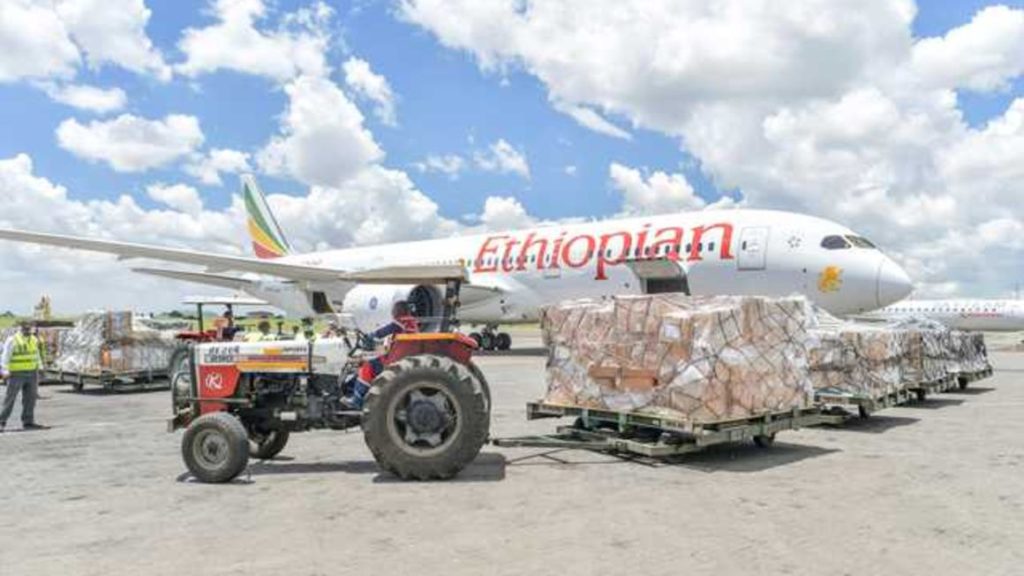Cargo unloaded from an Ethiopian Airlines plane at Jomo Kenyatta International Airport, Nairobi. The UN selected the carrier to distribute medical supplies to combat Covid-19. PHOTO | AFP In its latest market summary, the International Air Transport Association (IATA) said demand for air freight has stayed above pre-crisis levels.
IATA director general Willie Walsh, said data points that the cost-competitiveness of air cargo relative to that of container shipping has improved over recent months.
Kenya Airways and Ethiopian Airlines have already drawn up strategies to take advantage of their respective airports which are investing on cargo segments.
The battle for the air freight market share among African airlines is intensifying, thanks to Covid-19 disruptions that have driven up ocean freight rates. Many airlines are now upgrading their fleets and expanding destinations as shortage of containers in the region continues to bite.
In its latest market summary, the International Air Transport Association (IATA) said demand for air freight has stayed above pre-crisis levels.
“African airlines saw international cargo volumes increase by 26.7 percent end of last year, which is the largest increase of all regions. International capacity was 9.4 percent higher than pre-crisis levels, Africa is the only region in positive territory, albeit on small volumes,” read part of the IATA market summary. Cost-competitiveness
Shippers Council of East Africa Chief Executive Gilbert Lagat said, apart from cost and efficiency, time to receive consignments has boosted the air freight business considering persistent road and ocean delays.
“Importers consider time, cost and efficiency. If the consignment reaches on time at a moderate cost, importers will consider and with the increasing trade barriers at the borders, air freight is the best bet,” said Mr Lagat.
IATA director general Willie Walsh, said data points that the cost-competitiveness of air cargo relative to that of container shipping has improved over recent months.
“Improved competitiveness compared to sea shipping should continue to make air cargo a bright spot for airlines while passenger demand struggles with continued border closures and travel restrictions,” said Walsh.
Kenya Airways and Ethiopian Airlines have already drawn up strategies to take advantage of their respective airports which are investing on cargo segments.Early this month, cargo operations from Kenya’s Kisumu International Airport were formally launched opening up new markets for farmers to international markets.Kenya Airways (KQ) Chief Executive Allan Kivaluka said the airline will provide a capacity of six tonnes of cargo daily from the region destined to United […]
